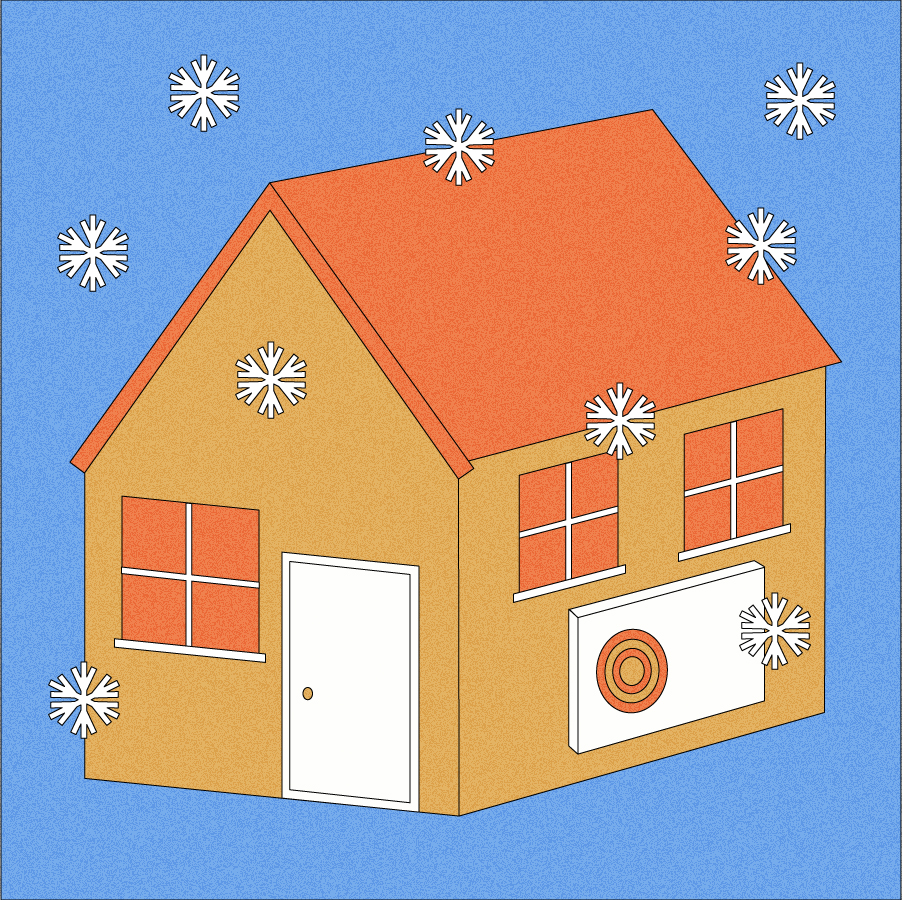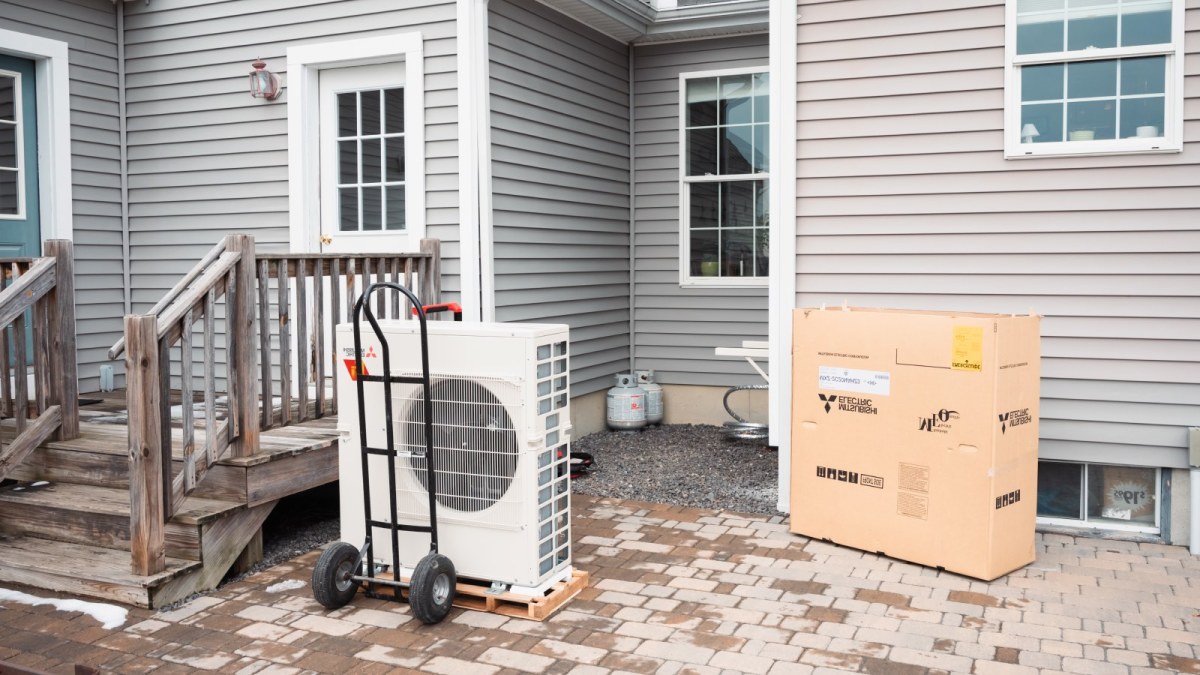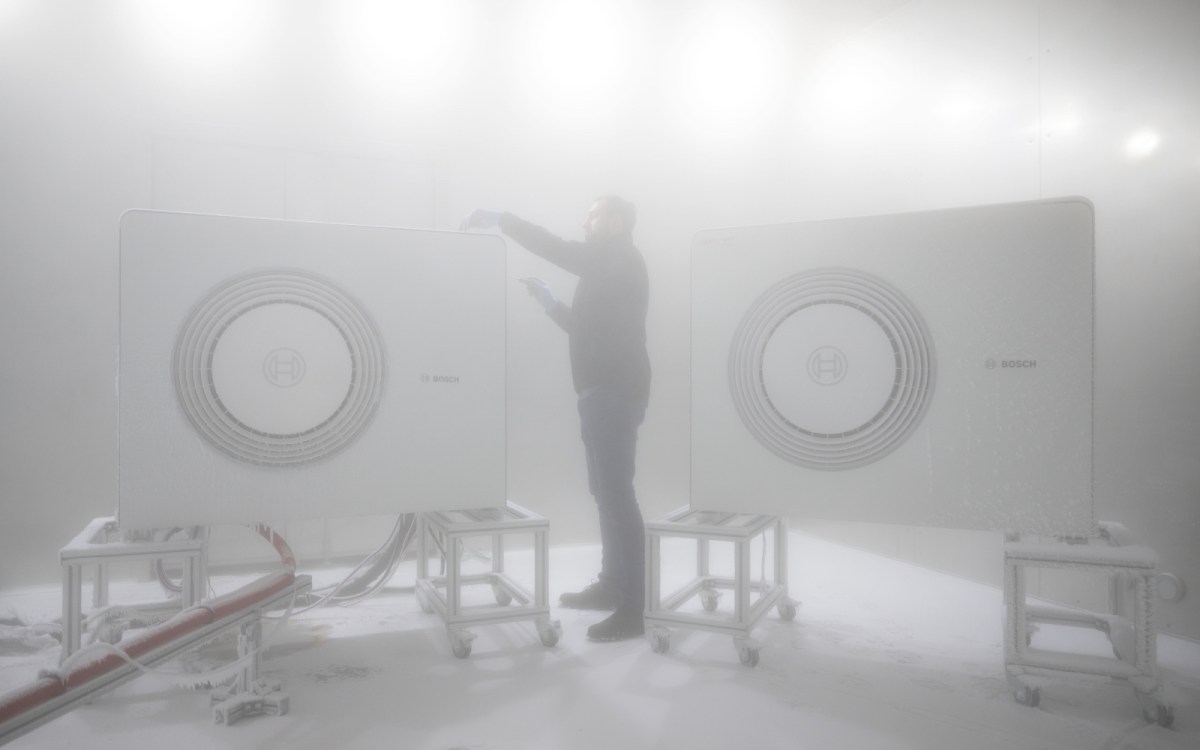
The vision
“We used to keep warm by huddling. And then we got fire, which actually created heat. And that’s what we’ve been doing for hundreds of years, just burning stuff. This is the first time since huddling and shivering that we’ve got a heating system that doesn’t burn anything. We’re really witnessing a phenomenal revolution in heating.”
Andy Meyer, senior program manager at Efficiency Maine
The spotlight
This winter continues to be characterized by extreme weather — unseasonable warmth in some places, and massive winter storms in others. During a brutal cold snap earlier this month in the northern U.S., the National Weather Service issued wind chill warnings and urged people to bundle up if they had to venture out. Inside their homes, many residents were anxiously watching the performance of a technology proponents have called one of our most overlooked climate solutions: heat pumps.
In Maine, which is no stranger to below-zero temperatures, the polar vortex that arrived was severe enough to break some cold-weather records. “When that comes, we get a number of phone calls from new heat pump owners,” says Andy Meyer, senior program manager at Efficiency Maine, a quasi-state agency that offers a variety of energy-efficiency programs. According to Meyer, the organization helps about 25,000 residents install heat pumps every year. People new to the devices tend to be nervous about how they’ll perform when the first cold snap rolls around, he says. “And then after a cold spell like this, we have about 25,000 more really, really happy, confident owners.”
For a long time, the prevailing wisdom held that heat pumps couldn’t work in the cold. But in places like Maine, they’re proving effective — and not only are they reducing emissions from heating, they’re also helping to prepare one of the coldest states in the country for the new reality of hotter summers.
![]()
Maine has one of the highest per capita heat-pump adoption rates in the U.S., and has even outpaced Scandinavian countries where the systems are extremely popular. Efficiency Maine has provided rebates to help install them in about 100,000 homes — in a state with just 600,000 residences. “They’re on oceanfront mansions, they’re on mobile homes, they’re on cabins — throughout the whole state, up to the Canadian border, down to the New Hampshire border,” Meyer says.
Heat pumps have been common in the southern United States for many years. But those tend to be models that are not designed for cold temperatures. “Most heat pumps are for temperate climates, and they’re used in conjunction with natural gas,” Meyer explains. In a dual fuel system like that, the less efficient but more powerful gas furnace takes over when it gets below 40 degrees or so. By contrast, what Efficiency Maine recommends are cold climate heat pumps, which have become much more effective in recent years. Those are able to pull heat from the air even at below-zero temperatures.
“If people say, ‘I’ve heard they don’t work [in the cold] — they heard the truth. Just not the whole truth,” Meyer says.
That “whole truth” has been partially obscured by misinformation spread by oil and gas companies pushing back hard against the growing electrification movement. According to the Washington Post, a trade association called the National Oilheat Research Alliance has funded campaigns in New England to perpetuate the notion that heat pumps are not suited to the region’s climate. But that hasn’t seemed to dissuade Mainers. “I’ve been heating my house with heat pumps and no backup since 2012. As long as they’re sized properly, they work just fine in any weather that Maine would have,” says Meyer. Heat pumps are also on the rise in places like Vermont and Alaska.

A new heat pump sits ready to be installed at a home in Windham, Maine, in January 2023. The Washington Post / Getty Images
“Heat pump” may be something of a misnomer, given that the devices offer both heating and cooling. But it makes sense in describing what the machine actually does — it transfers heat from one place to another. In the case of air-source heat pumps, indoor and outdoor units powered by electricity work together to draw heat from the outside air into the home to keep you cozy. They can work in reverse to move heat out of the home, cooling it like an air conditioner.
Because heat pumps are electric, they offer the potential for carbon-neutral heating and cooling as the nation’s electrical grids transition to renewables. They’re also mega efficient. When Meyer and his family bought their units back in 2012, they were 350 percent efficient — meaning they could create 3.5 times as much energy as they ran on. Today, Meyer says, the best units boast 450 percent efficiency. A top-of-the-line gas furnace, by contrast, maxes out at around 95 percent efficiency.
Although the agency did a great deal of work in the early days to build trust in a technology that sounded too good to be true, Meyer attributes much of the momentum to word of mouth. “Maine’s a small town,” he jokes. People trust their neighbors, and they take an interest in what others in the community are doing.
There’s also the fact that Maine, along with other northern states, is contending with warmer winters and hotter summers, requiring many residents to consider for the first time whether they need air conditioners. Heat pumps offer both, with the potential for significant savings on energy bills — and a tax credit to offset the cost of buying and installing one.
To Meyer, it represents a monumental shift in the technology we’ve used to provide heat during most of our human existence. Heat pumps don’t burn any fuel, and that’s where their efficiency truly comes from. “No matter what you burn, you can never exceed a hundred percent of the energy that’s in it,” he says. “In my opinion, this is the biggest revolution in heating since the discovery of fire.”
— Claire Elise Thompson
More exposure
- Read: a guide to choosing the right heat pump for your home (Wirecutter)
- Read: more about the rebates and tax incentives available from the Inflation Reduction Act (Consumer Reports)
- Read: a story on heat pumps’ proliferation in Norway (Reasons to be Cheerful)
- Read: about the growing push to electrify buildings in the U.S. (Grist)
- Watch: a video breaking down the cost and carbon savings heat pumps offer (Grist)
See for yourself
What about you? Are you considering switching to a heat pump or other energy-saving system? Do you already use one, and have strong feelings about it? Are you, like me, a renter — and wondering if it’s a conversation you should start with your landlord?
Reply to this email to tell us about your home heating sitch!
A parting shot
In an icy climate chamber in Wernau, Germany, a worker tests Bosch heat pumps at temperatures well below freezing.




